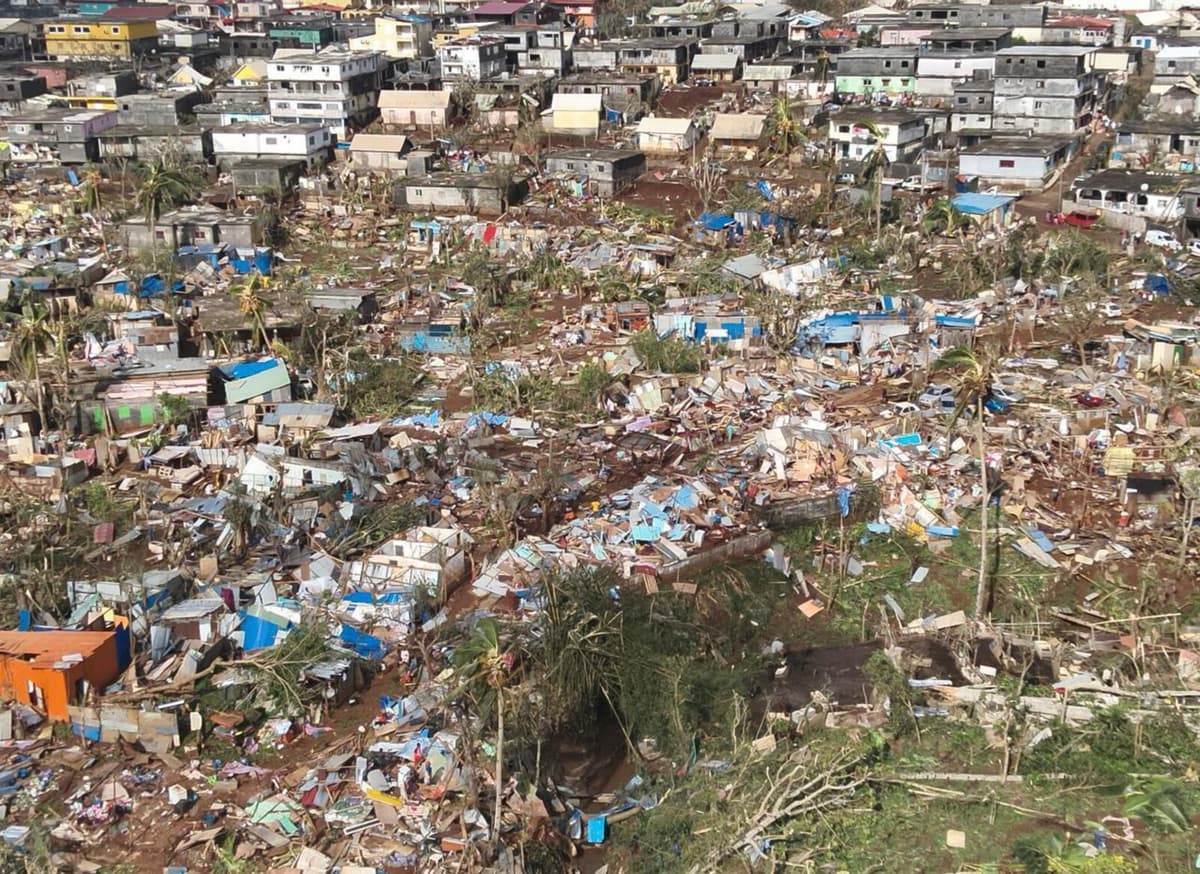Everything that remains after the cyclone Chido swept across the district over the weekend is ravaged hills, piles of tangled metal sheets, wood, and a few bare tree trunks.
We shouldn't be able to see the sea from here. Previously, vegetation covered the entire view, says Nasrine.
She lived in one of the few concrete buildings near Pamandzi on an island east of Mayotte's main island. Her house withstood the cyclone, but many others did not.
Disrupted Communications
A little further away, Touharati Ali Moudou has lost everything.
The wind knocked down the house, she says.
Before the cyclone hit the island, she had been told that she could take shelter in a nearby sports hall, but she stayed home with her elderly father. Everyone in the archipelago is well aware that the official figure stating that 22 people have died in the storm will likely be multiplied.
What I fear is that the figure will become far too high, says France's Interior Minister Bruno Retailleau to BFMTV.
He visited Mayotte on Monday and described the damage as colossal.
Communications are almost completely disrupted. No one has access to TV anymore, and mobile networks and internet are at best shaky. At worst, they don't work at all. Radio can sometimes reach with information.
Few Insured
According to a preliminary study from Imperial College London, the cyclone Chido was intensified by climate change. Similar cyclones are, according to researchers, also 40 percent more likely in the warmer climate of 2024 compared to pre-industrial times.
The cyclone met little resistance on its path across the archipelago where large parts of the population live in shantytowns. Many people are now gathering to clear debris.
Two trees have fallen on Morgane Renard's house in Pamanzi, but otherwise, it's intact. She is surveying the damage in the area.
Not even those who thought they were safe could imagine the extent to which the wind's violence could destroy everything, she says.
In all of Mayotte, there are informal communities where approximately 100,000 of the archipelago's around 300,000 registered inhabitants live.
According to Bruno Retailleau, only around 10 percent of the inhabitants had insurance, and the rebuilding will be difficult. But the work is already underway, everywhere you hear the sound of hammers.
It's urgent to get a roof over your head, soon the rainy season will begin.






